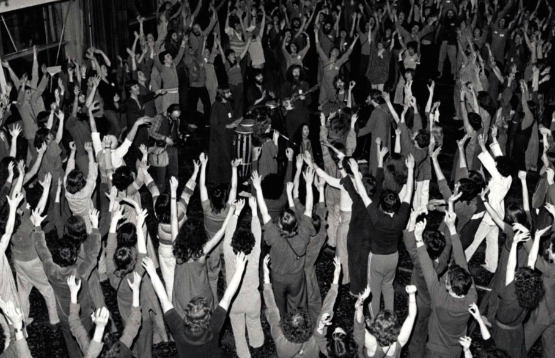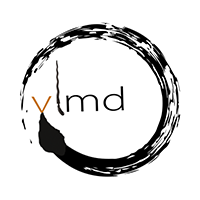
If the topic of physician burnout were in a board-certification exam, a sample question might look like this:
Physician burnout in Family Medicine is highest in
- Doctors with no ownership in their practices
- Doctors with partial ownership in their practices
- Self-employed doctors
- Academic health centers
Answer: a)
In a study of Family Medicine physicians, 43.7% suffered from burnout. (Other studies have reported a rate as high as 65%). The study found that 65.5% of those with burnout were employees with no ownership stake in their practices. Burnout rates in academic centers were 33.3%. Those who had partial ownership had a burnout rate of 48.8%. Self-employed physicians had a burnout rate of 28.9%.
Healthcare systems that employ doctors are akin to cults in how they operate to influence and control their members. These tactics utilize structural and psychological patterns that can lead to physician burnout.
Cult-like Control Mechanisms in Healthcare Systems
1. Centralized Authority and Control:
-Healthcare Systems: Typically, healthcare systems are structured with a hierarchical chain of command, where decisions flow from administrative leaders down to physicians and other healthcare workers. This centralized authority dictates work schedules, patient loads, and even clinical decisions, leaving little autonomy for individual doctors.
– Cults: Similarly, cults are characterized by a central figure or leadership group that holds significant power over members, often dictating every aspect of their lives, including their beliefs, behaviors, and interactions.
2. Demand for Total Commitment/Devotion:
– Healthcare Systems: Physicians are expected to show extraordinary commitment to their work, often working long hours, being on call, and sacrificing personal time for professional duties. This relentless demand for dedication erodes work-life balance and leads to physical, mental and emotional exhaustion.
– Cults: Cults often require members to demonstrate unwavering loyalty and commitment at the expense of personal relationships, time and well-being. This total commitment reinforces dependency on the cult.
3. Isolation and Social Deprivation:
– Healthcare Systems: Long hours and high stress levels can limit a physician’s time and energy for family, friends and hobbies, creating a sense of social isolation.
– Cults: Cults often isolate their members from external social networks, encouraging dependency on the group for emotional and social needs. This isolation reinforces the control of the leadership over the members.
4. Control through Guilt, Inadequacy and Fear
– Healthcare Systems: Physicians may experience guilt for not meeting patient needs or institutional expectations (those reviews chastising them for not smiling at their patients!!!), and fear repercussions such as loss of employment, professional reputation, or legal action. While they have no say in making operational decisions, as the ‘face’ of healthcare, they are blamed for any perceived failings of the organization. Negative reviews based on things they cannot control reinforce their sense of inadequacy. This creates a psychological environment where doctors feel compelled to overwork and neglect their own health.
– Cults: Cults frequently use guilt, fear and inadequacy to manipulate members, instilling a sense of obligation to the group and fear of punishment, disappointment or ostracism for non-compliance or failure to meet expectations.
Psychological Impacts on Physicians
1. Burnout and Mental Health Issues:
– Healthcare Systems:The cumulative effect of long hours, high stress, and lack of autonomy leads to burnout, characterized by emotional exhaustion, depersonalization, and a reduced sense of personal accomplishment. Burnout is often accompanied by depression, anxiety, and other mental health issues.
– **Cults:** Members of cults may experience similar psychological distress, including anxiety, depression, and burnout, due to the constant pressure to conform and the lack of personal autonomy.
2. Loss of Identity and Self-Worth:
– Healthcare Systems: Physicians may see themselves solely through the lens of their professional role, losing touch with their personal identities and self-worth outside of their work. This identity loss can be exacerbated by a lack of recognition and appreciation from the system.
– Cults: Cult members often experience a loss of individual identity, subsuming their sense of self into the group identity. Their self-worth becomes tied to their role and status within the cult, making them more susceptible to manipulation and control.
Dependency and the Cycle of Subjugation
1. Economic and Professional Dependency:
– Healthcare Systems: Physicians often become economically dependent on their positions within healthcare systems, with significant financial obligations tied to their careers. This dependency traps them in unsatisfying or harmful work environments.
– Cults: Cult members are frequently economically dependent on the group, with the cult controlling financial resources and livelihoods. This economic dependency reinforces the cycle of subjugation and compliance.
2. Perceived Lack of Alternatives:
– Healthcare Systems: The specialized nature and long duration of medical training and the high stakes of career transitions can create a perceived lack of viable alternatives for physicians. This perceived lack of options can reinforce their dependency on the current system. It also perpetuates a sense of hopelessness and a lack of meaning in their lives.
– Cults: Cults foster a perception that there are no viable alternatives outside the group, often through misinformation and isolation, making members feel they have no choice but to remain.
Conclusion
Structural and psychological pressures placed on physicians can lead to a state of dependency and burnout, a situation that is also seen in cult members. Recognizing these patterns is the first step in addressing the systemic issues that contribute to physician burnout. Just as individuals need help to break free from cults, doctors need help in taking back their lives and profession. Expecting healthcare systems to foster environments where physicians can thrive both professionally and personally is like expecting cults to empower their cult members in independent thought and free expression. In this light, it is clear why healthcare systems address physician burnout with condescending and totally out-of-touch gestures such as yoga coupons, meditation classes and free doughnuts (“to show we care”).
The only way to address burnout is to exercise our power. The entire healthcare system revolves around our professional license to practice medicine. We currently bear the risks and liabilities of medicine with no say in how we practice. Change requires that we re-establish our autonomy and the understanding that everyone else’s job in healthcare depends on us. Without physicians there would be no healthcare system, no hospitals, no pharmaceutical industry, no hospital administration. The truth is that we control healthcare and it is time that we exert that control.
